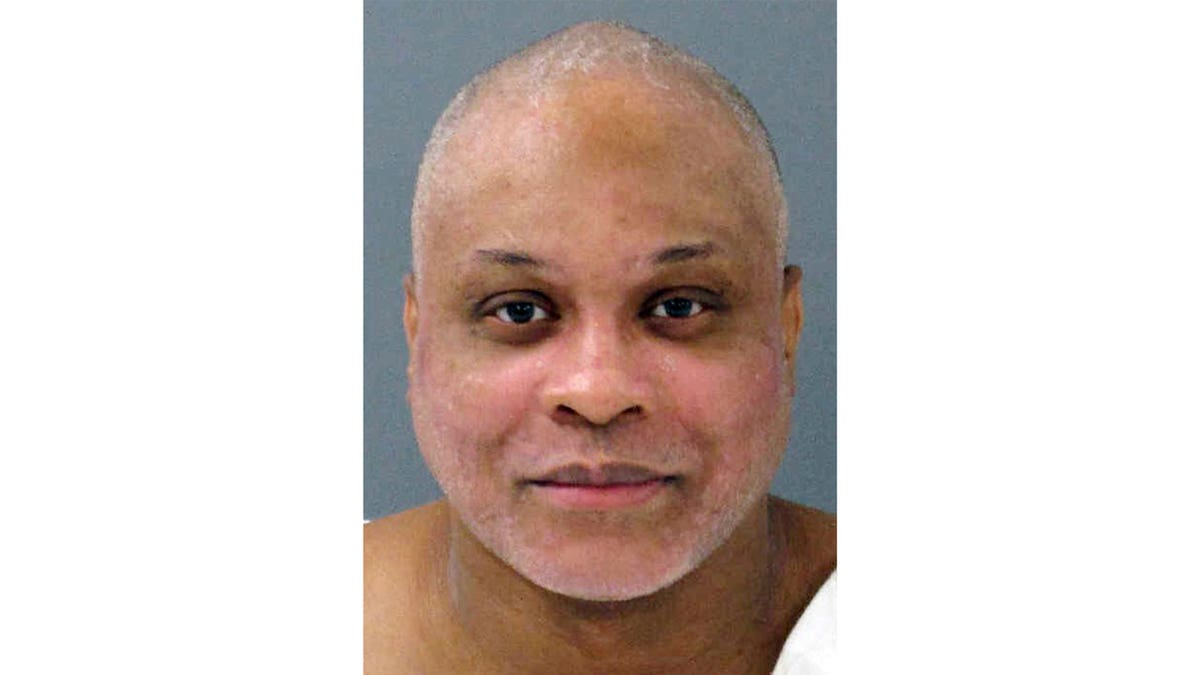Fox News Flash top headlines for February 8
Fox News Flash top headlines are here. Check out what's clicking on Foxnews.com.
An inmate convicted of killing three teenagers while they slept in a Texas Panhandle home more than 25 years ago faces execution Wednesday amid allegations that his trial was marred by racial bias.
It had been unclear whether John Balentine’s execution, scheduled for Wednesday evening at the state penitentiary in Huntsville, Texas, would go forward after a judge withdrew Balentine's execution date and warrant last week. The judge delayed the execution because the inmate’s attorneys had not been properly notified of the upcoming lethal injection. Such notification is required under state law.
A divided Texas Court of Criminals Appeals reinstated the execution order and warrant late Wednesday morning at the request of prosecutors in Potter County, where Balentine was convicted.
TEXAS DEATH ROW INMATES ALLEGE STATE PLANS TO USE 'UNSAFE' EXECUTION DRUGS IN LAWSUIT
Less than two hours before Balentine's scheduled execution, the U.S. Supreme Court declined an appeal from his lawyers.
Balentine's attorneys had asked the U.S. Supreme Court to stay the execution so that his claims of racial bias during his trial could be properly reviewed. His lawyers have also asked Republican Gov. Greg Abbott to grant a temporary reprieve.
A federal judge in Houston on Wednesday also denied a request to stay the execution over issues related to his clemency application with the Texas Board of Pardons and Paroles. On Wednesday afternoon, the paroles board unanimously declined to commute Balentine's death sentence to a lesser punishment or to grant a 30-day reprieve.
Balentine, 54, was condemned for the January 1998 shooting deaths of Edward Mark Caylor, 17, Kai Brooke Geyer, 15, and Steven Watson, 15, at a home in Amarillo. Balentine was 28 years old at the time.
Caylor was the brother of Balentine’s former girlfriend, and prosecutors said the shootings were the result of a feud between Caylor and Balentine. Prosecutors said all three victims were shot once in the head as they slept. Balentine said he had received threats over his interracial relationship with Caylor's sister. Balentine is Black. The three victims were white.
The appeals court denied a request from Balentine’s lawyers to stay his execution over allegations that "racism and racial issues pervaded" his trial. The appeals court denied the stay request on procedural grounds without reviewing the merits of the claims.
The Texas appeals court’s "unwillingness to address issues of bias and misconduct ... is all the more problematic," said Shawn Nolan, one of Balentine’s attorneys.
Potter County District Attorney Randall Sims declined to comment.

John Balentine, a Texas inmate who killed three teenagers in 1998, is set to be executed Wednesday evening. (Texas Department of Criminal Justice via AP, File)
Balentine’s attorneys allege the jury foreman, Dory England, held racist views and used racial slurs during his life and bullied other jurors who had wanted a life sentence into changing their minds.
Part of their petition included a statement from Lola Perkins, who had been married to England’s brother and who said England "was racist against Black people because that is how he was raised."
In a declaration he gave before his death in 2021, England said he pushed for a death sentence because he worried if Balentine was ever released, he "would need to hunt him down."
England also said when another juror "started going off about this Black guy killing these white teenagers ... I told him if he continued with his prejudice, I would have to report it to the judge."
Balentine’s attorneys also allege prosecutors used their ability to make objections during jury selection to remove all prospective Black jurors from serving at his trial.
"Without a thorough judicial consideration of Mr. Balentine’s claims, we can have no confidence that the death verdict isn’t tainted by racial bias," Nolan said.
Balentine’s attorneys also allege his trial lawyers referred to the sentencing proceedings in a note as a "justifiable lynching."
Randall Sherrod, one of Balentine’s trial attorneys, said Wednesday he could not remember the note but denied that he or the other attorney, James Durham Jr., had any racist attitudes toward Balentine. Durham died in 2006.
"I think he got a fair trial," Sherrod said. "I think we had a good jury. ... We tried to help John whatever way we could."
OKLAHOMA DEATH ROW INMATE SAYS HIS FATHER IS RESPONSIBLE FOR 1996 CRIMES
Balentine confessed to the murders. Sherrod said Balentine had turned down a plea agreement that would have sentenced him to life in prison because he was afraid of being attacked or killed in prison due to racist threats he had received.
Koda Shadix, the younger brother of Geyer, one of the victims, said he is upset by efforts to delay justice for his sibling and the others.
Balentine has "shown no remorse and absolutely does not care what he did. All he cares about is his life," Shadix said in a video posted online last week.
Balentine is one of five Texas death row inmates who are part of a lawsuit seeking to stop the state’s prison system from using what they allege are expired and unsafe execution drugs. Despite a civil court judge in Austin preliminarily agreeing with the claims, the state’s top two courts allowed two of the inmates who had been part of the litigation to be executed Jan. 10 and Feb. 1.
Prison officials said the state’s supply of execution drugs is safe.
CLICK HERE TO GET THE FOX NEWS APP
Balentine would be the third inmate in Texas and the sixth in the U.S. put to death this year. His execution would be a day after Missouri put to death a man convicted of killing his live-in girlfriend and her three young children.










































